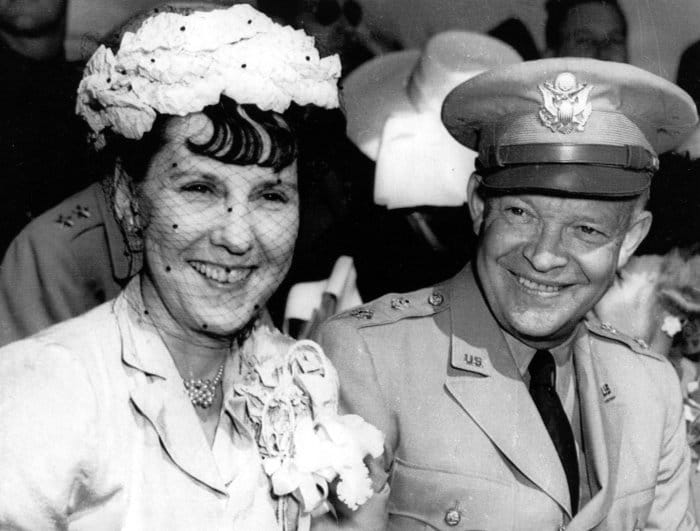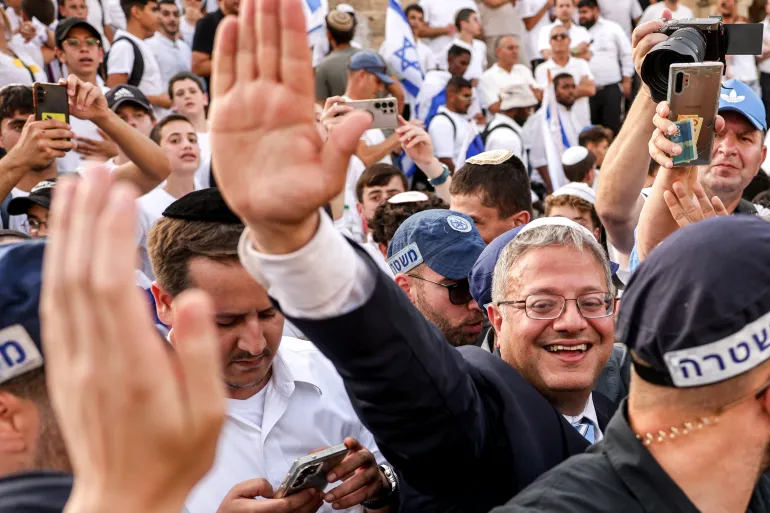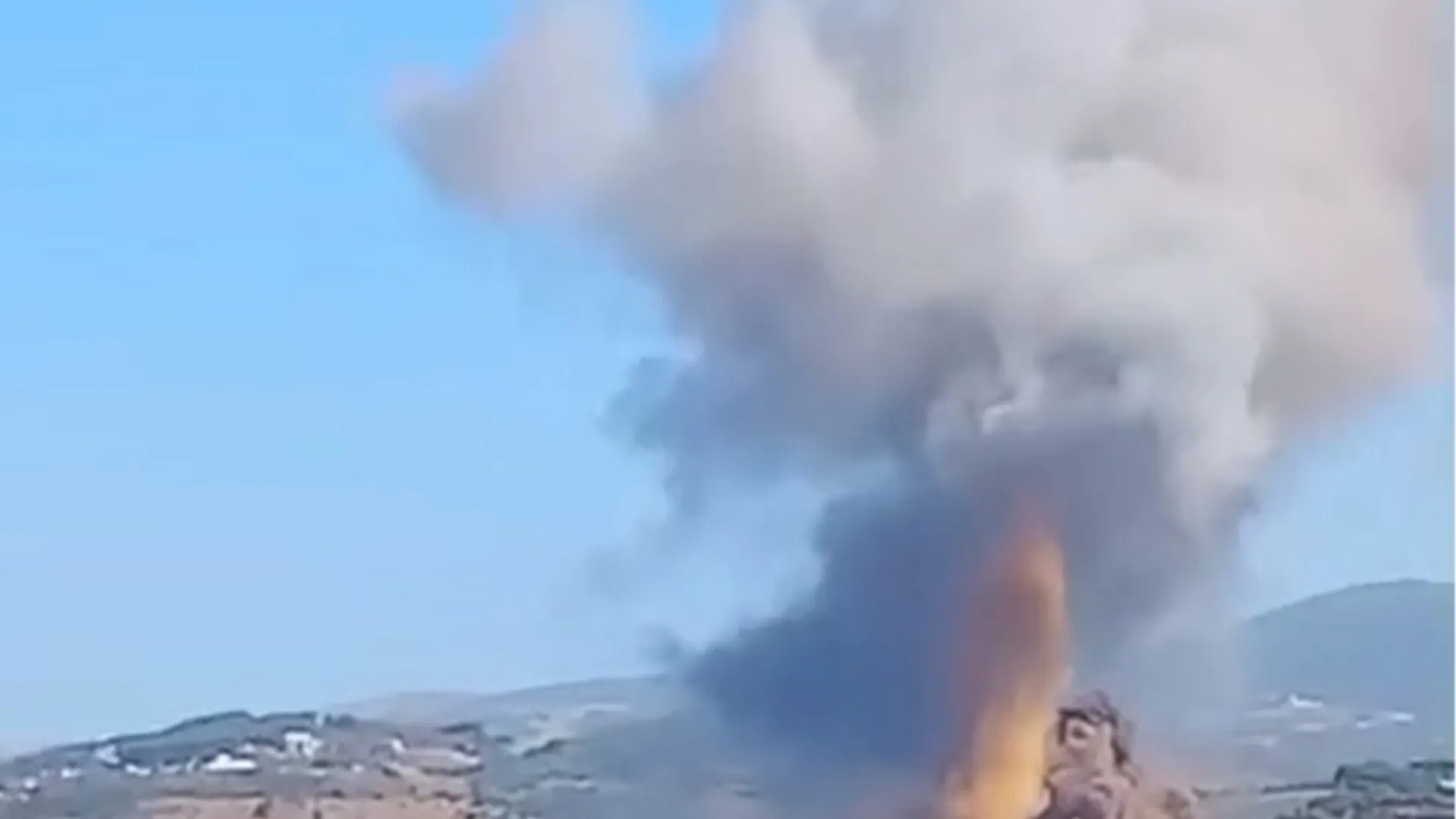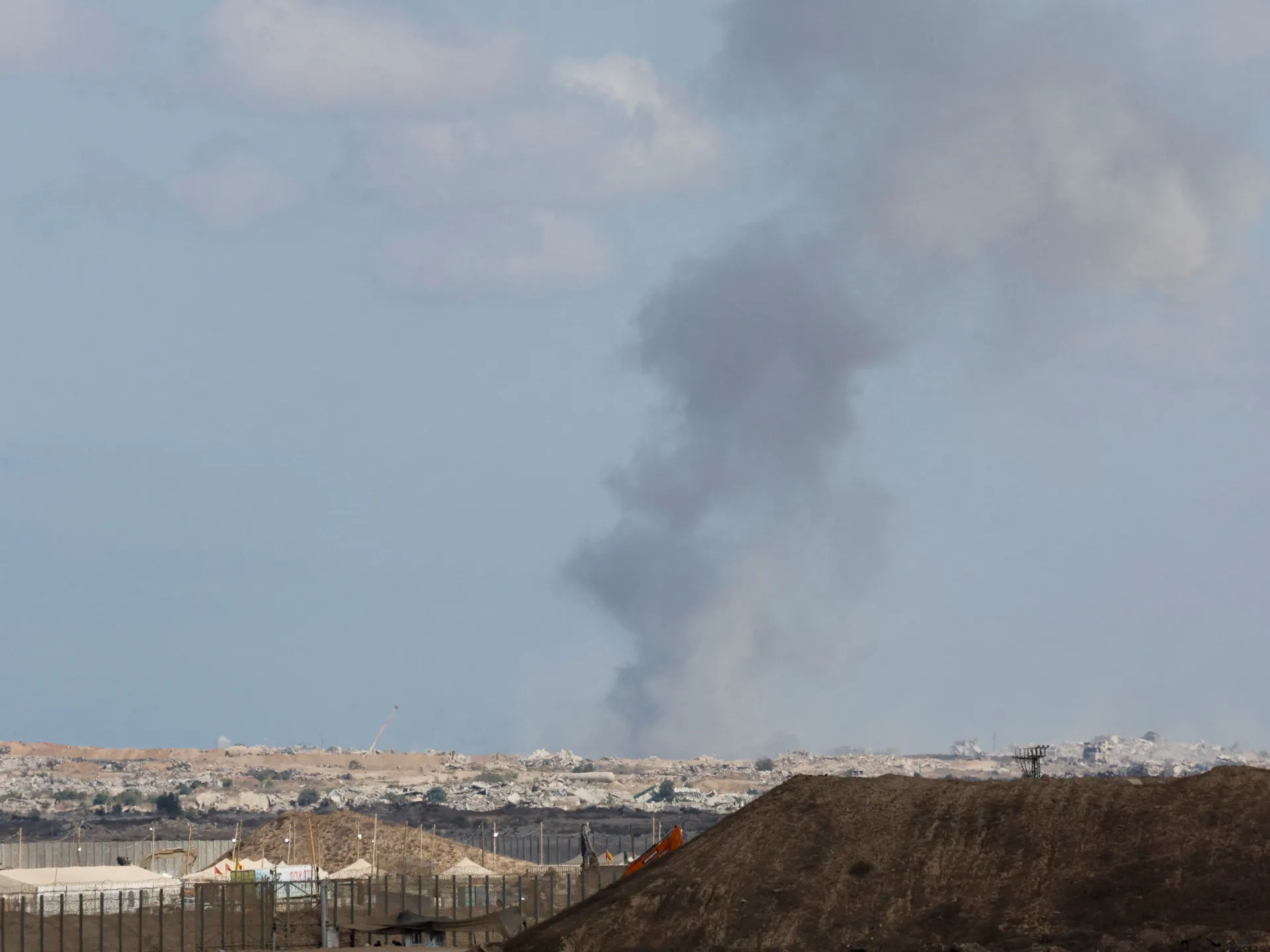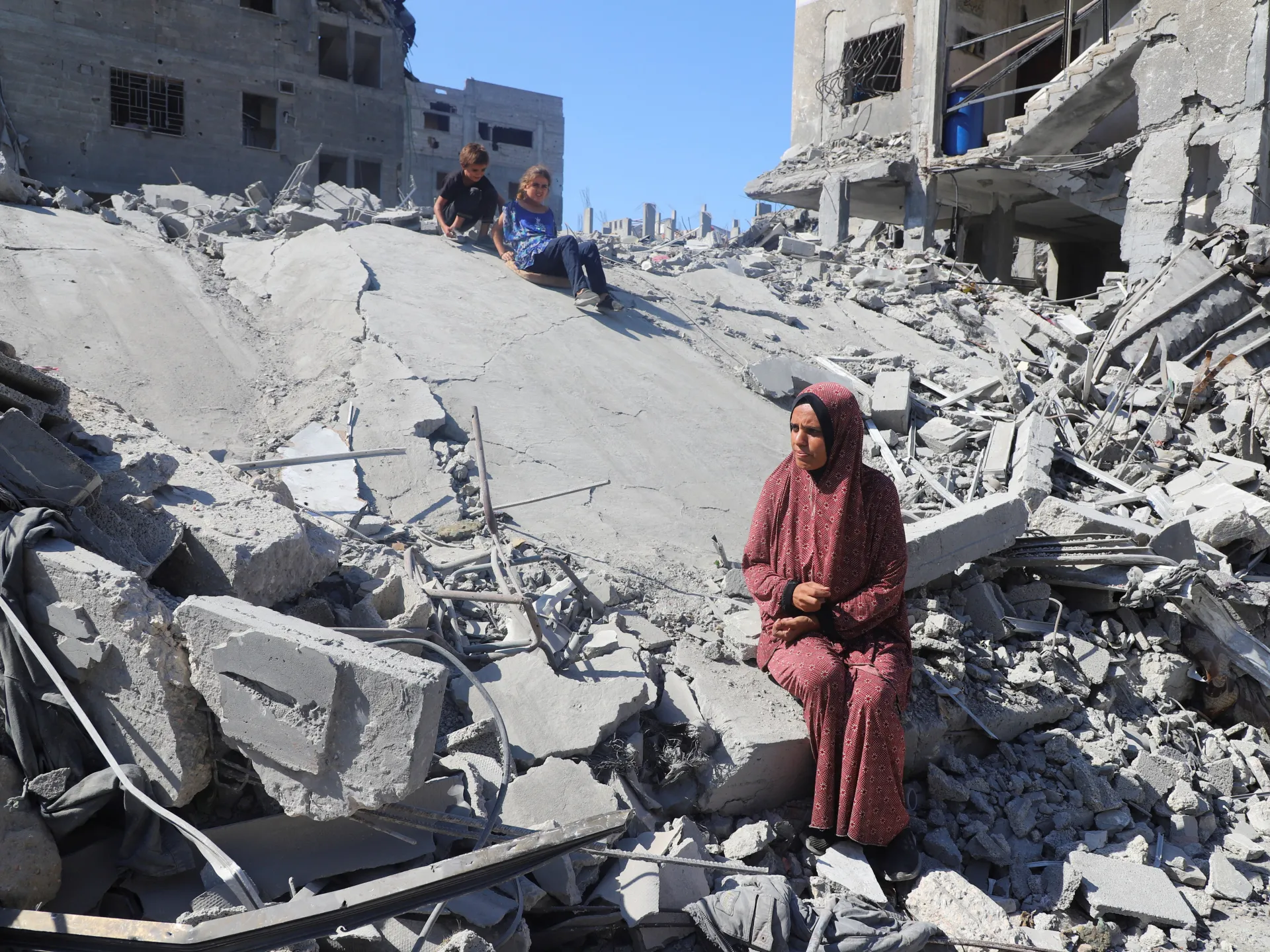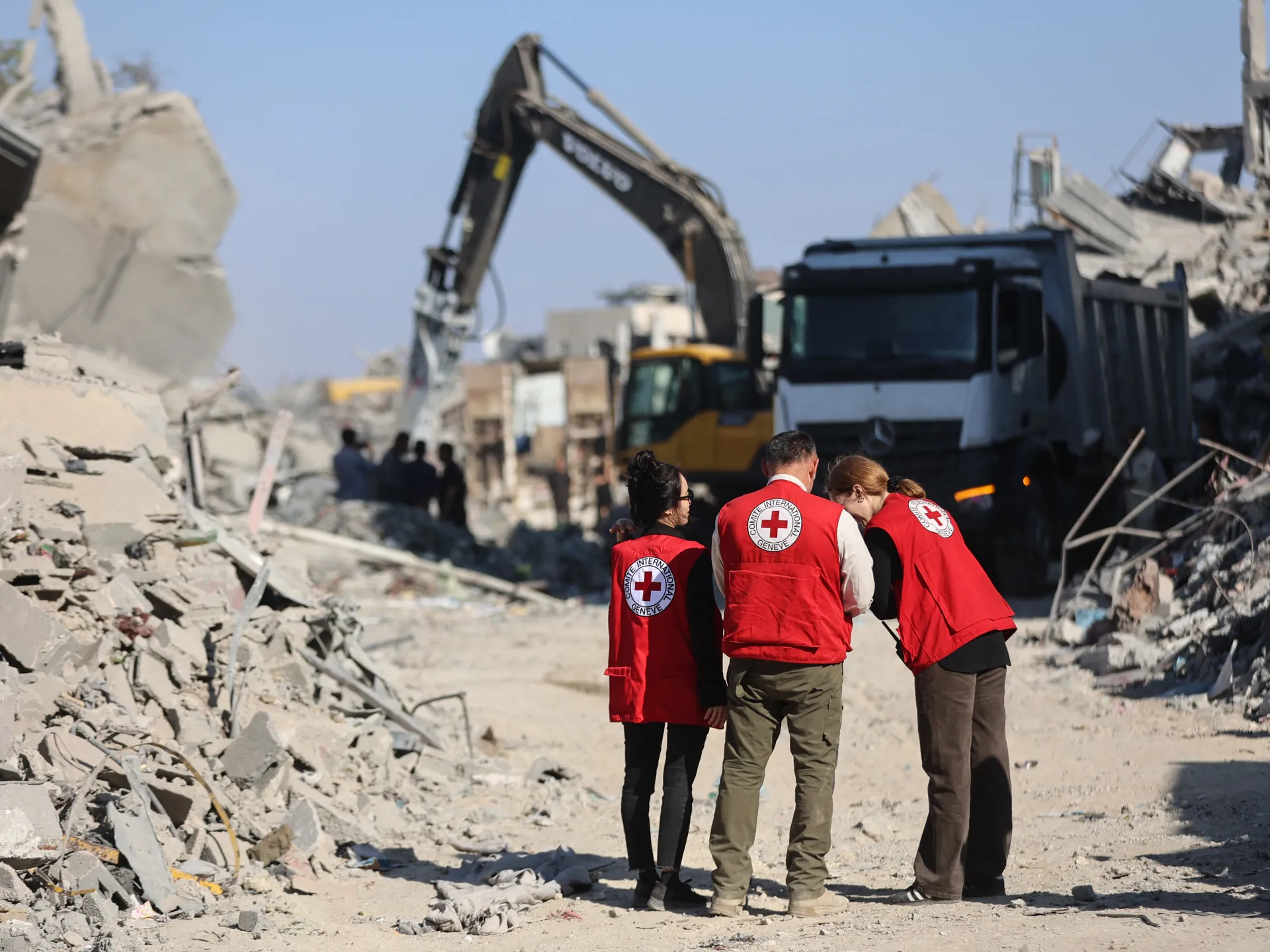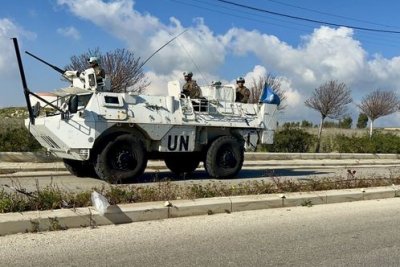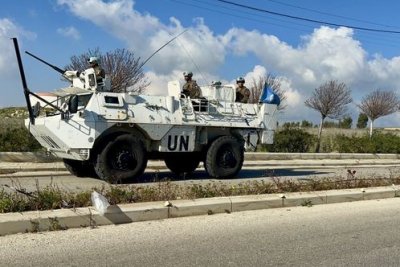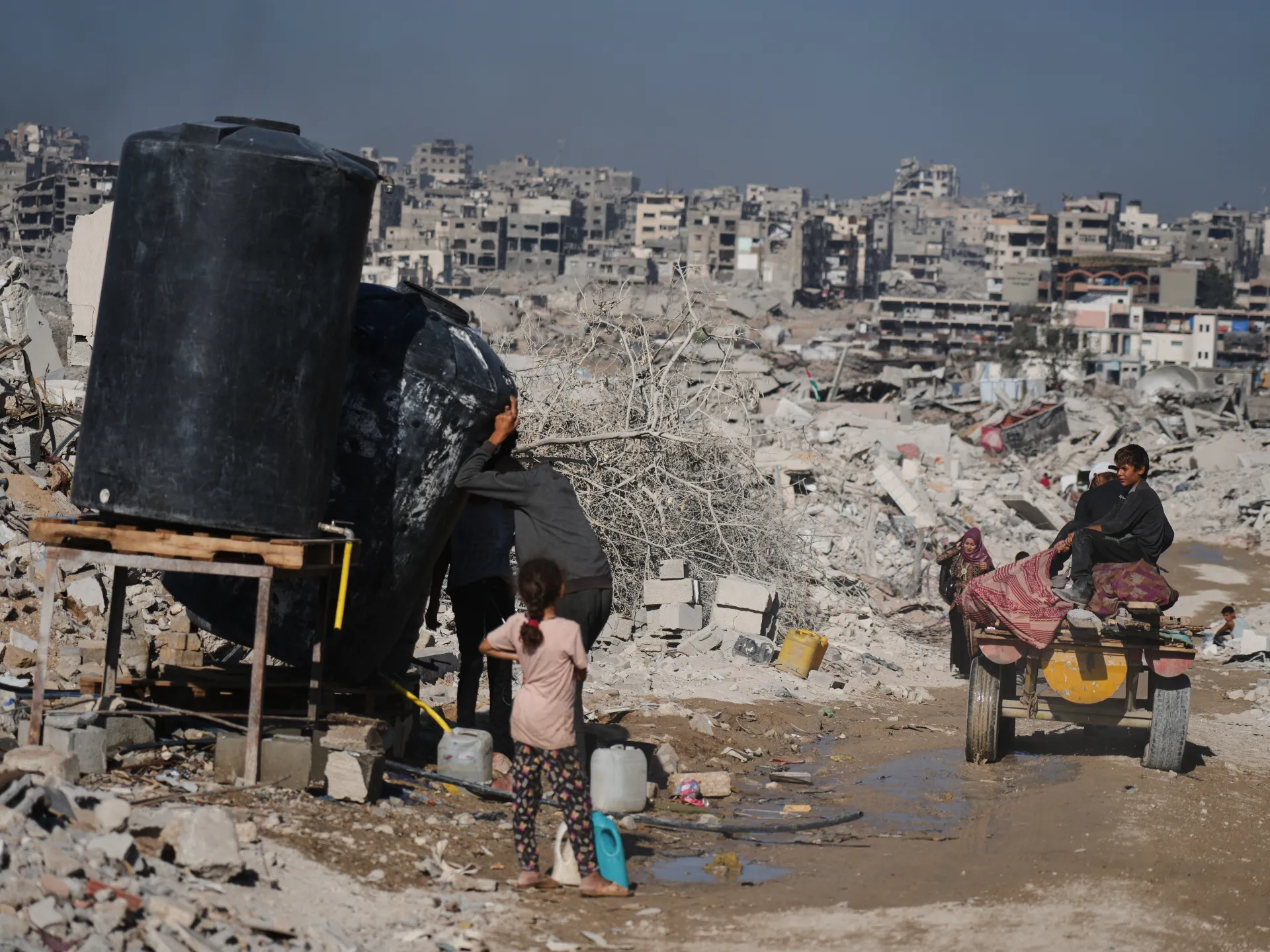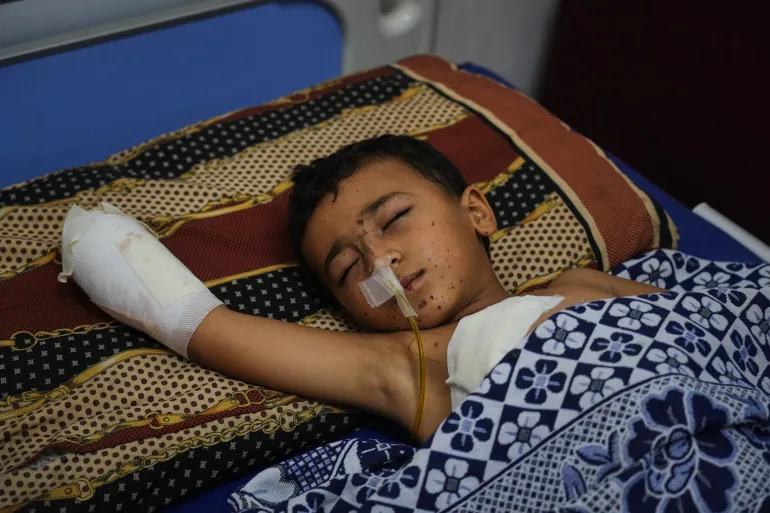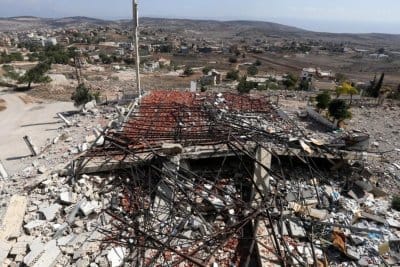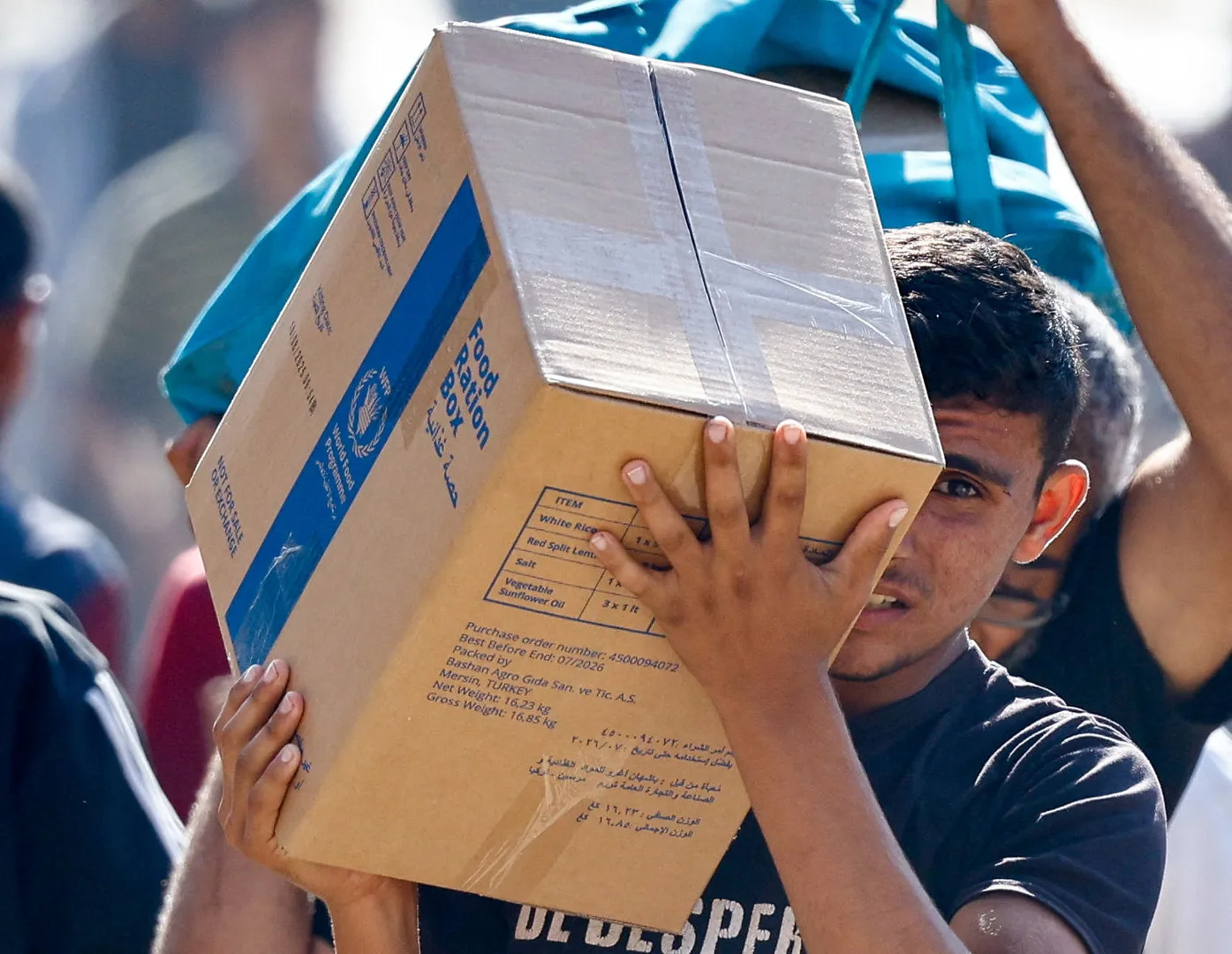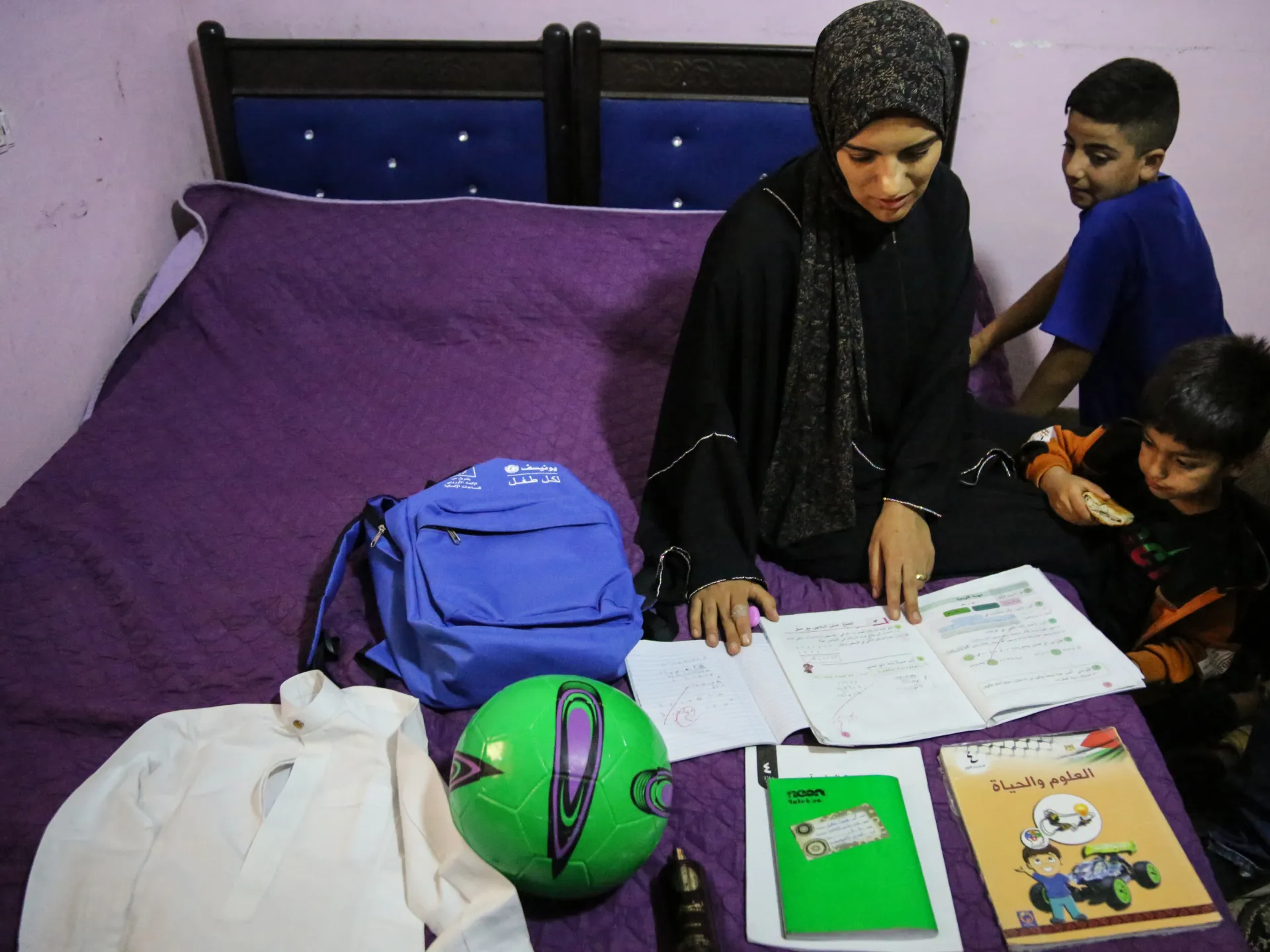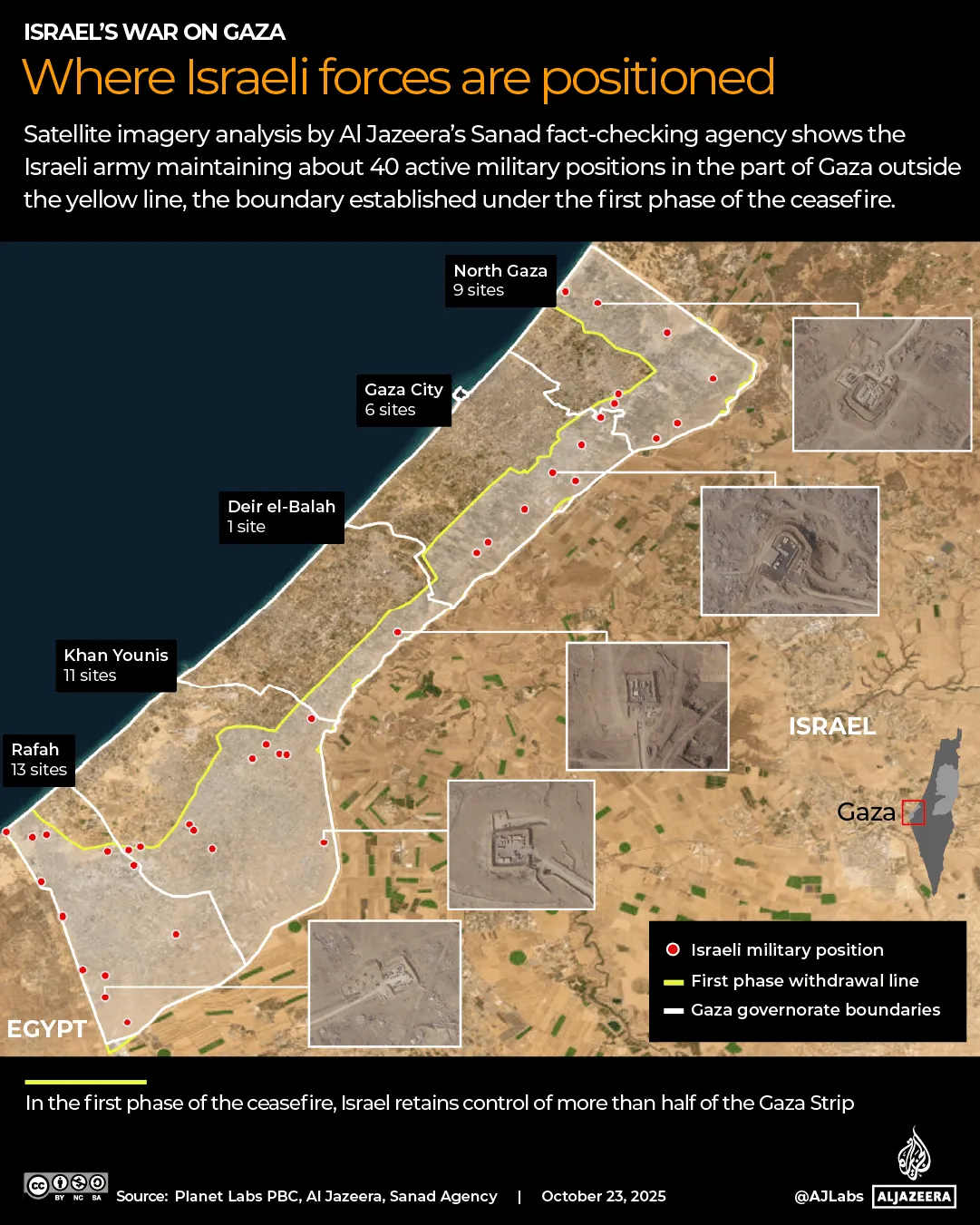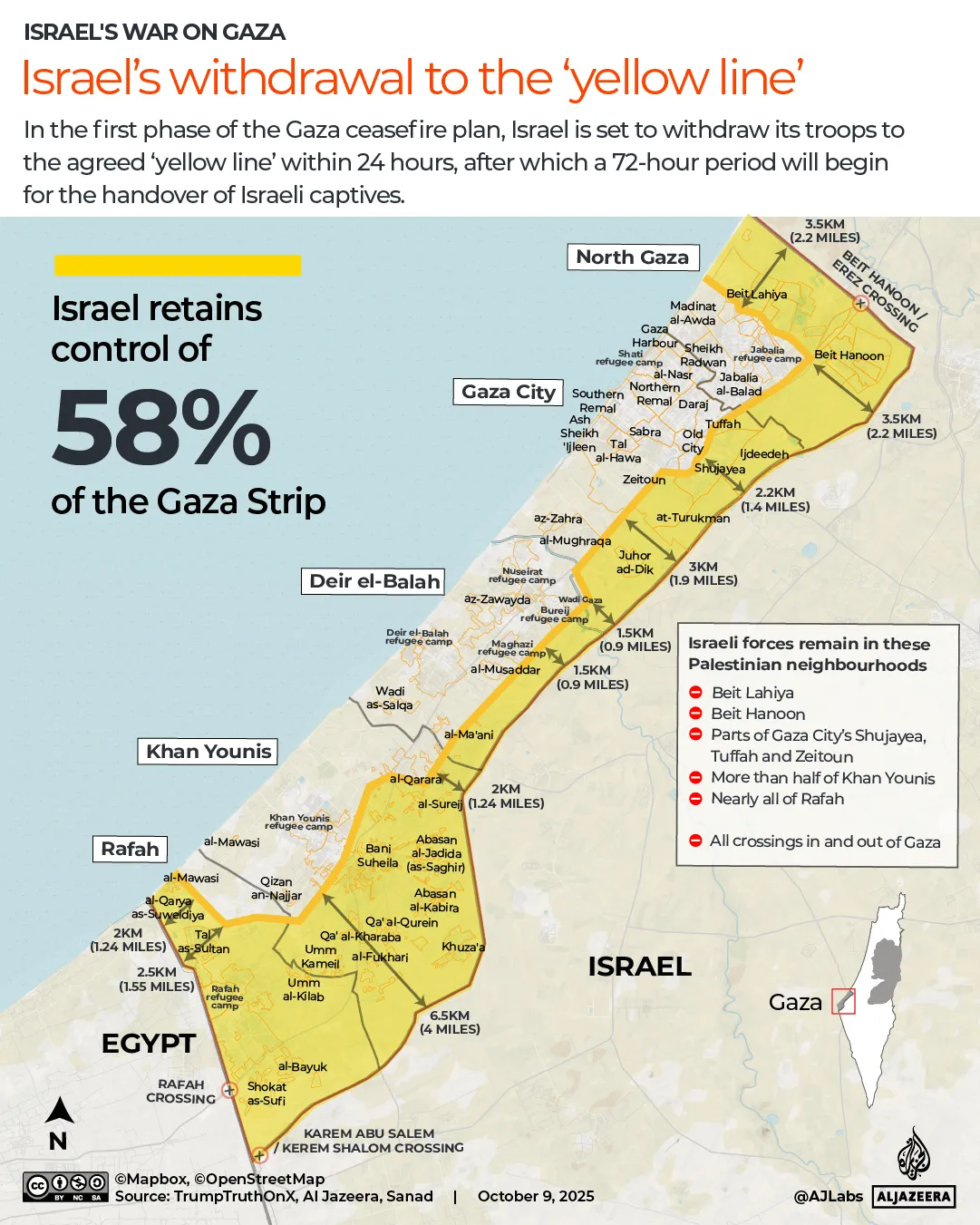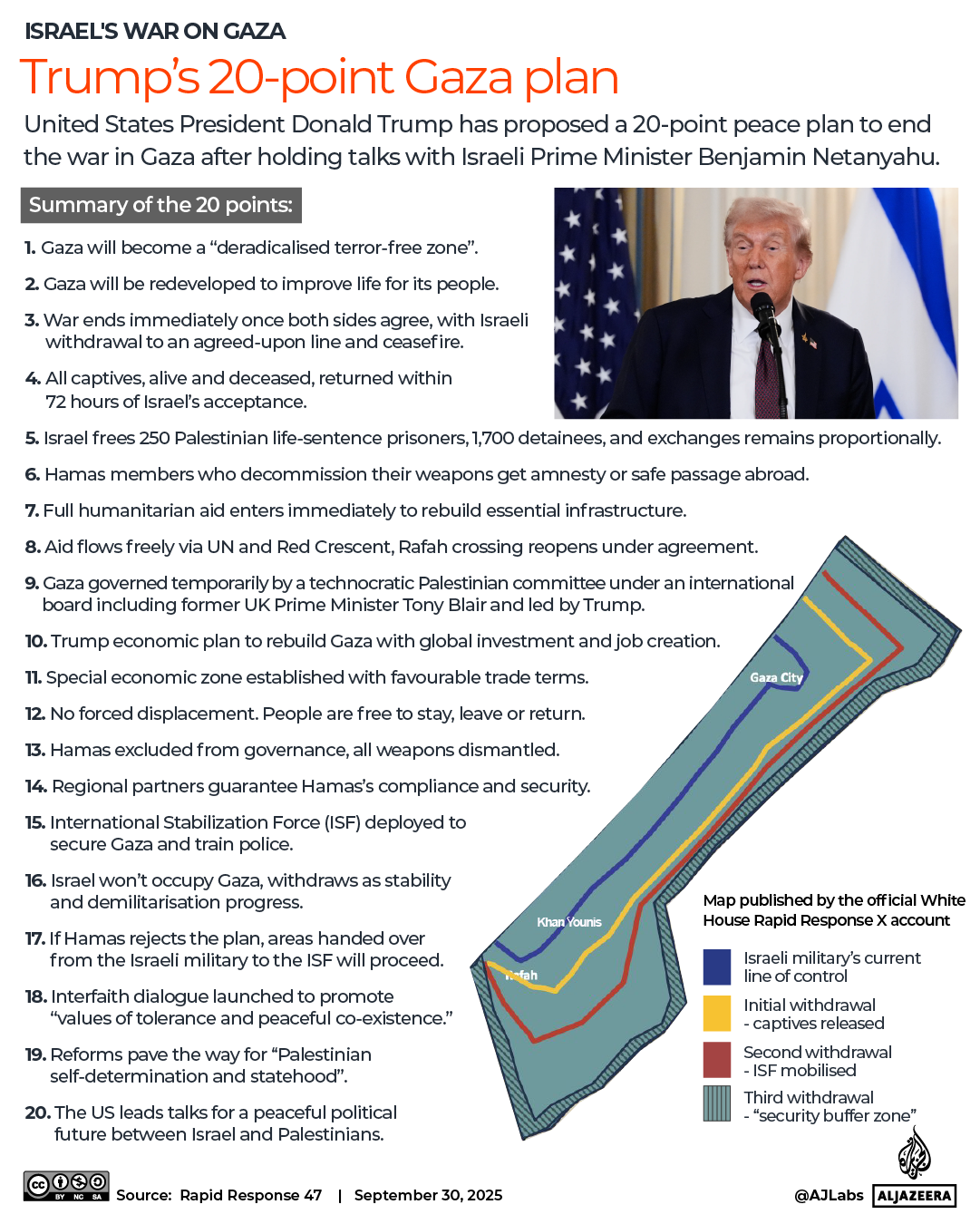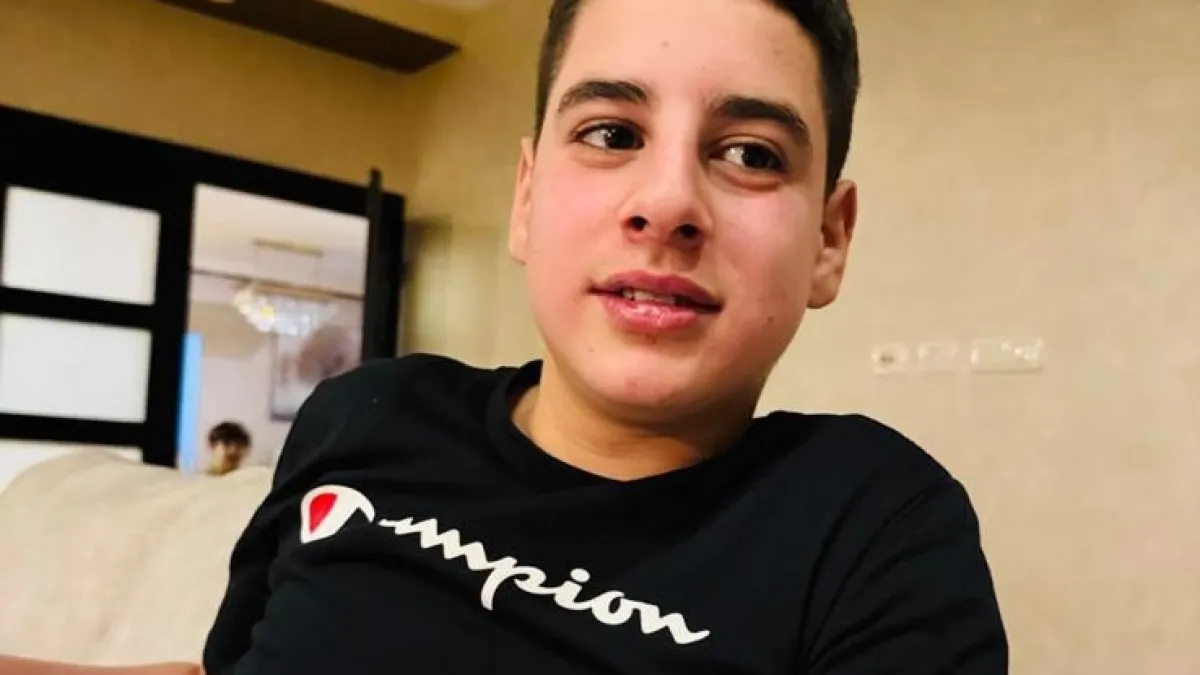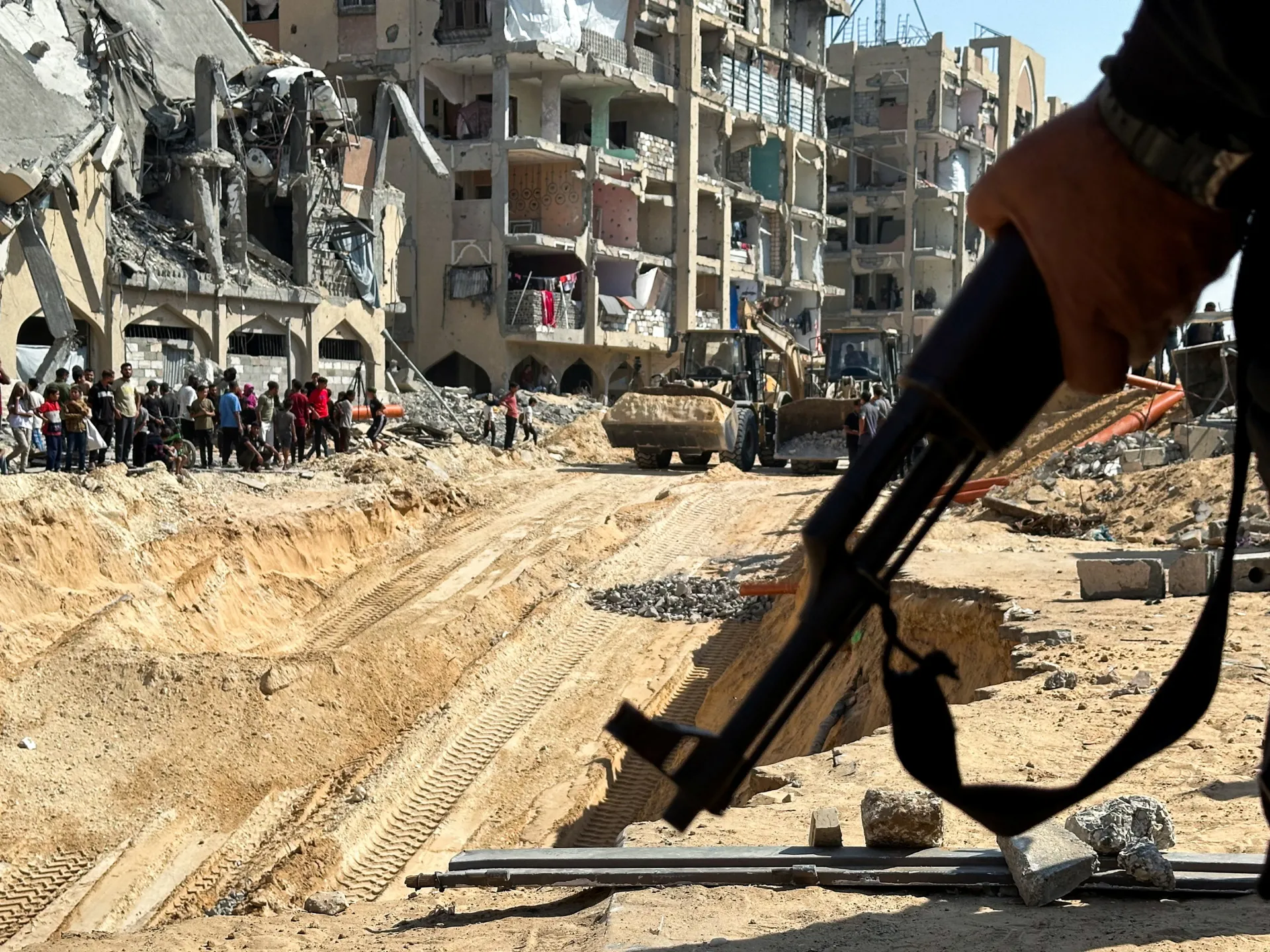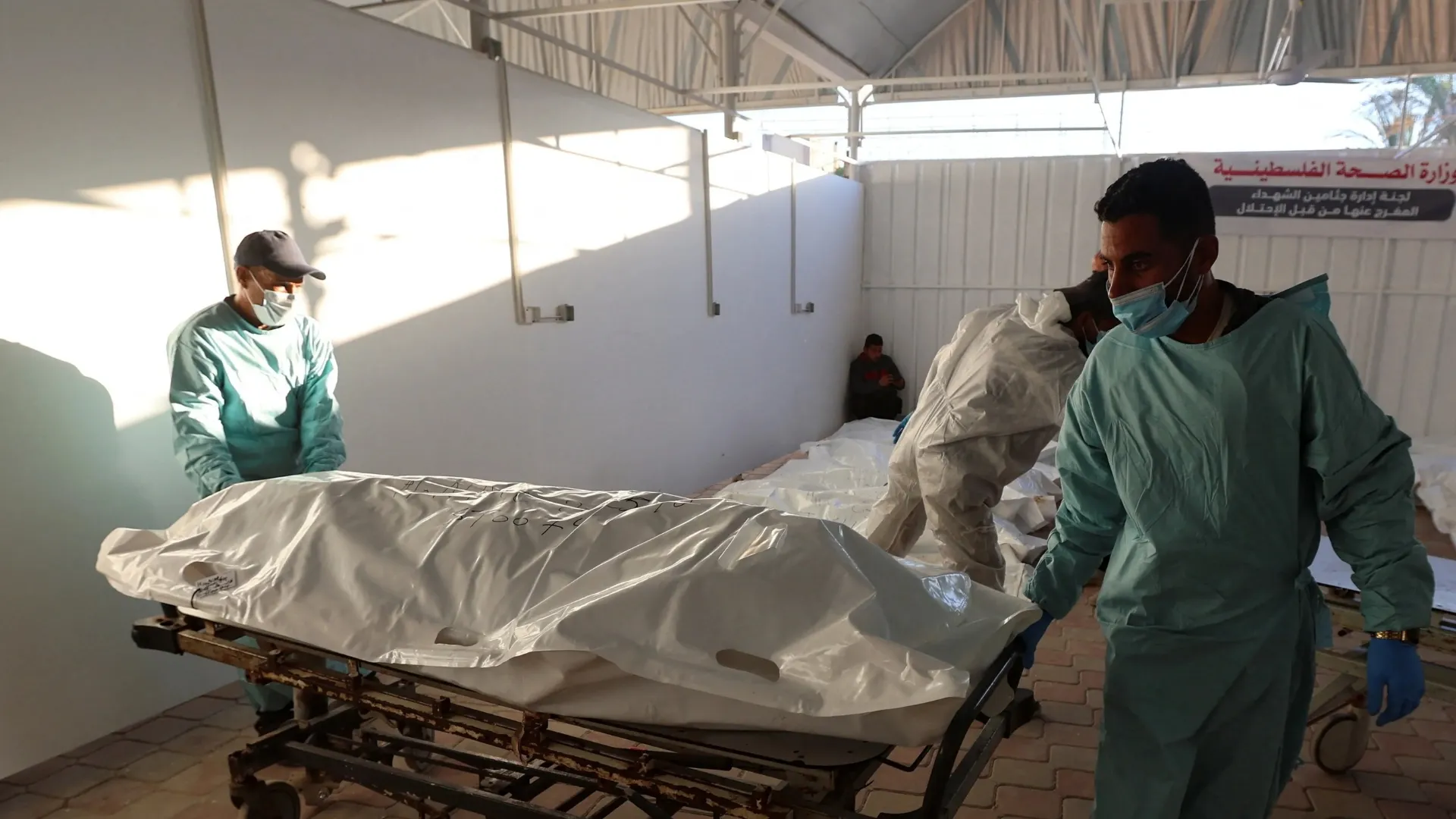This is a view of rubble of what once was the Meis Al Jabal public secondary school in in the Marjayoun district of southern Lebanon, on Monday. The school had been hit by Israeli air strikes during the war between Israel and Hezbollah. Photo by Wael Hamseh/EPA
BEIRUT, Lebanon, Oct. 24 (UPI) — The inhabitants of southern Lebanon continue to live under the shadow of war, enduring near-daily Israeli airstrikes, intensive shelling and persistent drone activity that inflict further casualties and destruction, deepen suffering and shatter what remains of daily life.
A cease-fire accord brokered by the United States and France on Nov. 27 intended to end Israel’s devastating war against the Iran-backed Shiite Hezbollah militant group has failed to halt hostilities or restore calm to the embattled region.
Interpreting the truce accord as granting it the right to respond to any emerging threat, Israel has continued its attacks without restraint across southern Lebanon and beyond.
The post-truce phase has proven even more difficult and uncertain than the war itself, which began on Oct. 8, 2023, when Hezbollah entered the conflict by opening a front in support of Gaza.
Suspected Hezbollah positions and efforts to prevent the group from regrouping and rearming have not been Israel’s only targets. The strikes now also include private construction equipment businesses, bulldozers, excavators and anything related to rebuilding while showing no restraint toward civilians — whether in vehicles, on motorcycles or even at home.
The most intense strikes occurred Oct. 11, targeting bulldozer and excavator yards in the al-Msayleh area, where more than 300 vehicles worth millions of dollars were destroyed. One Syrian passerby was killed, and seven people, including two women, were wounded.
A week later, a quarry and cement-asphalt factory in the village of Ansar, in the Nabatiyeh district, was hit by another Israeli attack and destroyed. Israel claimed that the targeted facilities were being used by Hezbollah to produce cement for rebuilding infrastructure that had been demolished during the war — an allegation strongly denied by the plant’s managing director.
“We are a 100% civilian institution and have nothing to do with anything else,” Ali Haidar Khalifeh, who is running the targeted cement factory, told UPI. “We are a registered company with around 70 employees and a large-scale production, serving dozens of clients, distributors and suppliers from across all regions of Lebanon.”
Khalifeh, who estimated the losses at more than $15 million, said it was inconceivable to hide “weapons, missiles or military infrastructure” in the plant.
“The enemy [Israel] needs no excuse or reason. … The message is clear: it is forbidden to rebuild,” he said. “It is also meant to frighten businessmen and investors, to keep them away from southern Lebanon.”
Even civilian engineers, who assist in assessing the damage inflicted on houses and villages during the war, have been threatened and targeted.
Tarek Mazaraani was one of them. He, his family and neighbors endured a frightening experience when an Israeli drone flying over several villages in southern Lebanon broadcast a voice message calling his name and warning that he was “dangerous,” telling people to keep away from him.
At first, when his friends started sending him videos of the drone, Mazraani thought it was a joke. He soon realized it was “something serious.”
His three sons, including 8-year-old twins, began to cry, while neighbors in the compound where he was temporarily living in the village of Zawtar al-Sharkiyeh in the Nabatiyeh district rushed to his house to bid farewell before leaving for safer locations. His family packed their belongings and went to relatives in a nearby village, while he quickly headed to Beirut.
“I was surprised. … I am a simple civilian engineer and don’t belong to any party or provoke anyone,” Mazraani told UPI, adding that he felt guilty for his family and neighbors, who had to “live through the tension” and leave their homes.
He asked why Israel had “created all this terror” if its intention was to kill him, adding, “They could have done so without even a warning.”
It could well have been a warning to him and others not to deal with Hezbollah, directly or indirectly. Earlier this year, while unemployed, he briefly worked as part of a team of engineers assessing war damage with “Jihad al-Binaa,” a Hezbollah-affiliated development and reconstruction organization.
Probably, he said, his other “sin” was trying to help displaced people return to their border villages, which had been reduced to rubble during the war, and seek compensation.
Mazraani was forced to leave his border village of Houla, where his house had been badly damaged by intensive Israeli bombardment. He then established the “Gathering of Residents of Southern Border Villages,” composed of displaced people from 45 villages, to draw attention to the plight of some 80,000 inhabitants who remain displaced and without resources.
Israel is making it clear, residents say, that it will not allow reconstruction in southern Lebanon or international funding unless Hezbollah is fully disarmed and the Lebanese government accepts direct negotiations on security arrangements.
Even prefabricated houses, water tanks and small vans are not permitted and are being destroyed. With the olive harvest season beginning, farmers in the border areas must obtain permission from Israeli authorities to harvest and are usually accompanied by the Lebanese Army and U.N. peacekeeping forces.
According to a Lebanese Army source, Israel has been using Hezbollah and its alleged efforts to rebuild military infrastructure as a pretext to block any reconstruction efforts and hinder a return to normalcy.
The source explained that destroying cement plants and bulldozers, threatening engineers and imposing curfews were intended to block the return of inhabitants to their villages and establish a security belt in the area until an agreement with Lebanon could be reached.
“These are also political pressures exerted on the government,” he told UPI.
Referring to recent Israeli war threats, drills on its northern front and intensified drone surveillance over Beirut — specifically targeting the presidential and government palaces — the source explained that “it is a psychological war aimed at dragging the government into accepting direct negotiations [with Israel], while the drones are searching for new targets.”
With the Army successfully advancing in taking control of southern Lebanon, the source confirmed that “there is no Hezbollah presence” along the border or south of the Litani River, as stipulated by the cease-fire agreement.
Regarding growing fears that Israel might be preparing to escalate the war on Lebanon, he said, “It can — as no one is deterring it, and it listens to no one except [U.S. President Donald] Trump.”
Many Lebanese, especially the inhabitants of southern Lebanon believe the war was never truly over, and that the truce accord merely prolonged the conflict to Israel’s advantage.
“The first thing we want is safety and security — to stop the fire so we can go back and rebuild our villages and homes,” said Mazraani, who said he was exhausted by the war, echoing the wish of many others in southern Lebanon.
